This article has multiple issues. Please help improve it or discuss these issues on the talk page. (Learn how and when to remove these template messages)
(Learn how and when to remove this template message)
|
Onibaba (??, lit.?Demon Hag) is a 1964 Japanese historical drama horror film written and directed by Kaneto Shindo. The film is set during a civil war in the fourteenth century. Nobuko Otowa and Jitsuko Yoshimura play two women who kill soldiers to steal their possessions, and Kei Sat? plays the man who ultimately comes between them.
| Onibaba | |
|---|---|
| Directed by | Kaneto Shindo |
| Produced by | Toshio Konya |
| Screenplay by | Kaneto Shindo |
| Starring |
|
| Music by | Hikaru Hayashi |
| Cinematography | Kiyomi Kuroda |
| Edited by | Toshio Enoki |
Production companies |
|
| Distributed by | Toho |
Release date |
|
Running time | 102 minutes |
| Country | Japan |
| Language | Japanese |
Screenplay
The film is set somewhere in Japan, in the mid-fourteenth century during a period of civil war. Two wounded soldiers flee from pursuers on horseback in an enormous field of thick reeds which are taller than a man. Suddenly the soldiers are killed with spears by unseen assailants. Two women appear, take the soldiers' armour and weapons, and drop the bodies in a deep hole. The women return to a small hut and rest, exhausted from the activity. The next day they take the armor and weapons to a merchant named Ushi (Taiji Tonoyama) and trade them for food. The merchant tells them news of the war, which is driving people across the country to desperation. As they leave, Ushi makes a sexual proposition to the older woman, who rebuffs him. A neighbor named Hachi (Kei Sat?), who has been at war, returns. The older woman (Nobuko Otowa) asks Hachi about her son, Kishi, who was forced to be a soldier along with Hachi. Kishi is the husband of the younger woman (Jitsuko Yoshimura). Hachi tells about his experience in two fights, where general Takauji Ashikaga attacked his division. He says that he and Kishi deserted. Later, Kishi was killed when they were caught stealing food from farmers, while Hachi barely escaped. The older woman warns the younger woman to stay away from Hachi, whom she blames for her son's death.
One beautiful day the younger woman is at the lake when Hachi approaches her, offering fish. He shows interest in her sexually and makes advances before the older woman interrupts. They then see two samurai chasing one another and fighting on horseback. The samurai jump in the lake and keep fighting, swimming closer to the three as they go. As one samurai approaches, asking for help, Hachi stabs him to death with his spear. He then orders the women to get the other man, whom they drown in the lake. The two women take their armour as before and Hachi sells it to Ushi, giving them their first substantial meal in a long time. Despite being warned to stay away from Hachi, the young woman is seduced by him and sneaks out of her hut every night to have sex. The older woman learns of the relationship and is both angry and jealous. She tries to seduce Hachi herself, but is coldly rebuffed. She then pleads with him to not take the young woman away, since she cannot kill without her help.
One night, while Hachi and the young woman are together, a lost samurai wearing a demon (Hannya) mask (J?kichi Uno) forces the older woman to guide him out of the swamp. He claims to wear the mask to protect his face, the most handsome in the land, from harm. She tricks him into plunging to his death in the pit where the women dispose of their victims. She climbs down and steals the samurai's possessions and, with great difficulty, his mask. Under the mask he is horribly disfigured, which the older woman notes with spite. As she leaves, the older woman then gets an idea to keep her daughter-in-law away from Hachi.
At night, as the young woman goes to see Hachi, the older woman blocks her path, wearing the samurai's robes and mask, frightening the woman into running home. During the day, the older woman further convinces the younger woman that the "demon" was real, as punishment for her affair with Hachi. The younger woman avoids Hachi during the day, but continues to try and see him at night. During a storm, the older woman again terrifies the younger woman with the mask, but Hachi, tired of being ignored, finds the younger woman and has sex with her in the grass as the devastated old woman watches from afar. Hachi returns to his hut, where he discovers another deserter stealing his food; the deserter abruptly grabs his spear and stabs Hachi, killing him.
The older woman discovers that, after getting wet in the rain, the mask is impossible to remove. She reveals her scheme to the young woman and pleads for her to help take off the mask. The young woman agrees to remove the mask after the older woman promises not to interfere with her relationship with Hachi. After failing to pull it off, the young woman breaks off the mask with a hammer. Under the mask, the older woman's face is covered with sores, as the samurai's had been. The young woman thinks the older woman has turned into a demon, and flees; the older woman runs after her, crying out that she is a human being, not a demon. The young woman leaps over the pit, and as the older woman leaps after her the film ends.
Most of the cast consisted of members of Shindo's regular group of performers, Nobuko Otowa, Kei Sat?, Taiji Tonoyama, and J?kichi Uno. This was Jitsuko Yoshimura's only appearance in a Shindo film. The two women do not have names even in the script, but are merely described as "middle-aged woman" and "young woman".
- Nobuko Otowa as Older woman
- Jitsuko Yoshimura as Younger woman
- Kei Sat? as Hachi
- Taiji Tonoyama as Ushi
- J?kichi Uno as the masked warrior
This section needs expansion. You can help by adding to it. (November 2018) |
The story takes place shortly after the Battle of Minatogawa which began a period of over 50 years of civil war, the Nanboku-ch? period (1336 to 1392). Hachi tells of an attack from general Takauji Ashikaga, who came to power in the 1330s.
The story of Onibaba was inspired by the Shin Buddhist parable of yome-odoshi-no men (??????) (bride-scaring mask) or niku-zuki-no-men (?????) (mask with flesh attached), in which a mother used a mask to scare her daughter from going to the temple. She was punished by the mask sticking to her face, and when she begged to be allowed to remove it, she was able to take it off, but it took the flesh of her face with it.
Kaneto Shindo wanted to film Onibaba in a field of susuki grass. He sent out assistant directors to find suitable locations. Once a location was found near a river bank at Inba-Numa in Chiba, they put up prefabricated buildings to live in. Filming started on 30 June 1964 and continued for three months.
They had a rule that if somebody left they would not get any pay, to keep the crew motivated to continue. Shindo included dramatized scenes of the dissatisfaction on the set as part of the 2000 film By Player.
To film night scenes inside the huts, they would put up screens to block the sun, and changing the shot would require setting the screens in a completely different spot.
Kaneto Shindo said that the effects of the mask on those who wear it are symbolic of the disfigurement of the victims of the Atomic bombings of Hiroshima and Nagasaki, the film reflecting the traumatic effect of this visitation on post-war Japanese society.
The film contains some sequences filmed in slow motion.
The scenes of the older woman descending in to the hole had to be shot using an artificial "hole" built above ground with scaffolding, since holes dug in the ground at the location site would immediately fill with water.
Score
Onibaba's score is by Shindo's long-term collaborator Hikaru Hayashi. The background and title music consists of Taiko drumming combined with jazz.
Onibaba was released in Japan on November 21, 1964 where it was distributed by Toho. The film was released in the United States by Toho International with English subtitles on February 4, 1965. An English-dubbed version was produced by Toho, but any actual release of it is undetermined. On the films initial theatrical release in the United Kingdom, the film was first rejected by the BBFC on its first submission, and then released in a heavily edited form after its second submission."
Home media
It was released as a Region 1 DVD on March 16, 2004 in the Criterion Collection. A Region 2 DVD was released in 2005 as part of the Masters of Cinema series.
This section needs expansion. You can help by adding to it. (August 2015) |
From a contemporary review, the Monthly Film Bulletin" noted that "Shindo obviously likes to milk his situations for all they are worth-and then some." noting that "Onibaba has the same striking surface as ." and that the film "has the same tendency to fall apart if examined too closely". The review praised Kuroda's "fine photography" but noted that nothing else "in the film quite matches this opening among the reeds, or its aftermath in the ruthless stripping of the victims and disposal of their corpses, except perhaps the encounter between the old woman and the General."
A. H. Weiler of the New York Times described the film's raw qualities as "neither new nor especially inventive to achieve his stark, occasionally shocking effects. Although his artistic integrity remains untarnished, his driven rustic principals are exotic, sometimes grotesque figures out of medieval Japan, to whom a Westerner finds it hard to relate." The review noted that Shindo's "symbolism, which undoubtedly is more of a treat to the Oriental than the Occidental eye and ear, may be oblique, but his approach to amour is direct... the tale is abetted by Hiyomi Kuroda's cloudy, low-key photography and Hikaru Kuroda's properly weird background musical score. But despite Mr. Shindo's obvious striving for elemental, timeless drama, it is simply sex that is the most impressive of the hungers depicted here."
Critics disagree on the genre of the film. While Onibaba is regarded a "period drama" by David Robinson, or "stage drama" by Japanese film scholar Keiko I. McDonald, Phil Hardy included it in his genre compendium as a horror film, and Chuck Stephens describes it as an erotic-horror classic. Writing for Sight & Sound, Michael Brooke noted that "Onibaba's lasting greatness and undimmed potency lie in the fact that it works both as an unnervingly blunt horror film (and how!) and as a far more nuanced but nonetheless universal social critique that can easily be applied to a
Watch movie Onibaba Film online on Amazon
Watch movie Onibaba Film online
Watch The Movie On PrimeMeri Biwi Ka Jawab Nahin Full HD Movie Download

Rafoo Chakkar (2008) Full HD Movie Download
.jpg)
Laat Saab Full HD Movie Download
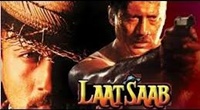
Mumbai Meri Jaan Full HD Movie Download

Laawaris Full HD Movie Download

Sapoot Full HD Movie Download
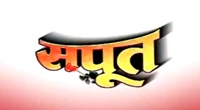
Nishan Full HD Movie Download
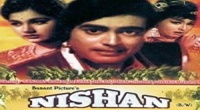
Game (Hindi) Full HD Movie Download
.jpg)
Aastha: In The Prison Of Spring Full HD Movie Download
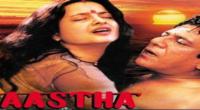
Jackie Full HD Movie Download

7 Khoon Maaf Full HD Movie Download

Sri Parameswari Mahimalu Full HD Movie Download
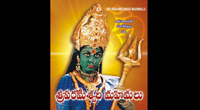
Ra Ra Krishnayya Full HD Movie Download
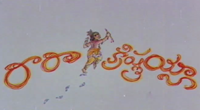
Khaidi Inspector Full HD Movie Download
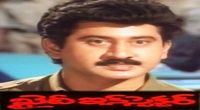
Saakshi Full HD Movie Download
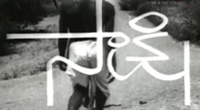
Allauddin Adbutha Deepam Full HD Movie Download
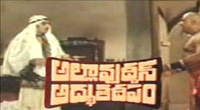
Vaddante Dabbu Full HD Movie Download
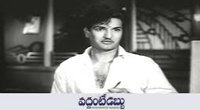
Aaryan Full HD Movie Download
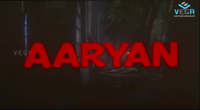
Aalkkoottathil Thaniye Full HD Movie Download

Allari Bullodu Full HD Movie Download
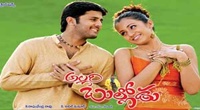
Mere Brother Ki Dulhan Full HD Movie Download

Download latest Movie from bollywood
- 1> baaghi 3
- 2> THE SKY IS PINK MOVIE FULL STORY AND REVIEW
- 3> Luka Chuppi
- 4> TO ALL THE BOYS I’VE LOVED BEFORE
- 5> Kabir Singh
- 6> Street Dancer 3D
- 7> Simmba
- 8> Gone Girl
- 9> The Girl Who Lived
- 10> Ludo
- 11> DILWALE DULHANIA LE JAYENGE
- 12> GUILTY
- 13> The Godfather
- 14> Adventures of Rusty
- 15> Sooryavanshi
- 16> Satyameva Jayate 2
- 17> Thappad
- 18> Bhool Bhulaiyaa 2
- 19> KGFChapter 2
- 20> Mardaani 2
- 21> Pinjar
- 22> Shivaji maharaj
- 23> Ek Villian 2
- 24> Hungama 2
- 25> Divergent
- 26> Mumbai Saga
- 27> The Internship
- 28> HIT (telugu)
- 29> Panga
- 30> The perfect date
- 31> 16 December
- 32> Gopala Gopala (Telugu)
- 33> Brahmastra
- 34> Gangubai Kathiawadi
- 35> Manmadhudu
- 36> Nenu local
- 37> Mahanati
- 38> Shatamanam bavathi
- 39> Lagaan
- 40> After
- 41> MOM
- 42> Shamshera
- 43> Raguvaran BTech
- 44> Khakee
- 45> The villain
- 46> OM
- 47> Mr. perfect
- 48> Bueatifull mind
- 49> Hichki
- 50> Gabbar Singh
- 51> Jogi
- 52> Before Sunrise
- 53> Before Sunset
- 54> Before Midnight
- 55> The Big Bull
- 56> Top Gun: Maverick
- 57> The Purge
- 58> The Sky is Pink
- 59> Laxmmi Bomb
- 60> Sadak 2
- 61> Sufna
- 62> Prithviraj
- 63> PK
- 64> Coolie No 1(2020)
- 65> Black Widow
- 66> Dear Zindagi
- 67> Dil Bechara
- 68> PHIR HERA PHERI
- 69> WAR
- 70> Dostana
- 71> RRR: Roudram Ranam Rudhiram
- 72> Maidan
- 73> Dabbang 3
- 74> Chhalaang
- 75> life as we know it
- 76> SherShaah
- 77> Sandeep Aur Pinky Faraar
- 78> Event Horizon
- 79> 83
- 80> Radhe: Your Most Wanted Bhai
- 81> Gunjan Saxena: The Kargil Girl
- 82> Mr India
- 83> Vivah
- 84> Anokha Bandhan
- 85> Ghost
- 86> Bhoot: Part One - The Haunted Ship
- 87> Haseen Dilruba
- 88> Laal Singh Chaddha
- 89> Qismat
- 90> Rajput
- 91> Drive
- 92> Dil Chahta Hai
- 93> Dil Ki Baazi
- 94> Dil Ka Rishta
- 95> Teesri Manzil
- 96> Dil
- 97> Love Aaj Kal
- 98> Khaali Peeli
- 99> Bunty Aur Babli 2
- 100> Atrangi Re
- 101> Gulabo Sitabo
- 102> Jodi
- 103> Suraj Pe Mangal Bhari
- 104> Deewana
- 105> Attack
- 106> Sardar Udham Singh
- 107> Toofan
- 108> THE LOVEBIRDS
- 109> Jersey
- 110> Ginny Weds Sunny
- 111> Thalaivi
- 112> Shiddat
- 113> Angels vs Zombies
- 114> Koi Mil Gya
- 115> Thank God
- 116> Bhuj: The Pride of India
- 117> Hum Aapke Hain Kaun
- 118> The Platform
- 119> Bird Box
- 120> Roohi Afzana
- 121> Torbaaz
- 122> Nikamma
- 123> World War Z
- 124> Extraction
- 125> Train to Busan
- 126> Life of Pi
- 127> SHAADI MEIN JROOR AANA
- 128> Himmat Aur Mehnat
- 129> To All The Boys: P.S. I Still Love You
- 130> Mimi
- 131> Good Newwz
- 132> Shubh Mangal Zyada Saavdhan
- 133> Raabta
- 134> Harry Potter and the Philosopher's Stone
- 135> Harry Potter and the Chamber of Secrets
- 136> Chhapaak
- 137> War of the Worlds
- 138> Harry Potter and the Prisoner of Azkaban
- 139> Harry Potter and the Goblet of Fire
- 140> MURDER MYSTERY
- 141> Shakuntala Devi
- 142> Bachchan Pandey
- 143> Jayeshbhai Jordar
- 144> Sheer Qorma
- 145> Saina
- 146> 'O' Pushpa I hate tears
- 147> Kedarnath
- 148> MS Dhoni The Untold Story
- 149> Chhichhore
- 150> Badhaai Ho
- 151> Unstoppable
- 152> Oz the Great And Powerful
- 153> The Girl on the Train
- 154> Haathi Mere Saathi 2020
- 155> The Conjuring: The Devil Made Me Do It
- 156> Gandhi Se Pehle Gandhi
- 157> The Song of Scorpions
- 158> Srimanthudu
- 159> Hello Guru Prema Kosame
- 160> Beauty and The Beast
- 161> Black Panther
- 162> Charlie and the Chocolate Factory
- 163> Bole Chudiyan
- 164> Fidaa
- 165> Duvvada Jagannadham
- 166> Bruce Lee: The Fighter
- 167> Hyper
- 168> Yaara
- 169> Red (2020)
- 170> Shivam
- 171> That Is Mahalakshmi
- 172> Nishabdham
- 173> Aashram 2020 web series
- 174> Laxmii
- 175> Mismatched
- 176> STUDENT OF THE YEAR 2
- 177> NAIL POLISH
- 178> Ramprasad Ki Tehrvi
- 179> KAAGAZ
- 180> 12 o Clock
- 181> The Power
- 182> bolo hau
- 183> Tribhanga
- 184> JAMUN
- 185> Madam Chief Minister
- 186> Maasaab
- 187> Aadhaar
- 188> Tanhaji
- 189> Bhaagi 3
- 190> Bhootnath
- 191> MALANG
- 192> Jai Mummy Di
- 193> Haathi Mere Saathi 2021
- 194> Shakeela
- 195> Unpaused
- 196> Annayya
- 197> Vamsoddharakudu
- 198> Mrugaraju
- 199> Narasimha Naidu
- 200> Sankranti
- 201> Manasu Maata Vinadhu
- 202> Anjaane
- 203> Apaharan
- 204> Bachke Rehna Re Baba
- 205> Bewafaa
- 206> Roohi
- 207> Radhe
- 208> Zindagi Khoobsoorat Hai
- 209> Yeh Mohabbat Hai
- 210> Yeh Kya Ho Raha Hai?
- 211> The Tomorrow War
- 212> DehradunDiary
- 213> Meri Shaadi Karaoo
- 214> Matruu Ki Bijlee Ka Mandola
- 215> No One Killed Jesica
- 216> Aag Ka Goola
- 217> Eight Million Dollars
- 218> Three Hundred
- 219> Cats and Dog
- 220> Decoy
- 221> Gold Rush
- 222> You Have Got Mail
- 223> Final Destination three
- 224> Tofan
- 225> Jungle
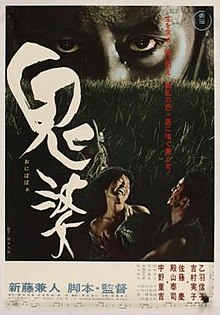 Story of movie Onibaba Film :
Story of movie Onibaba Film :
